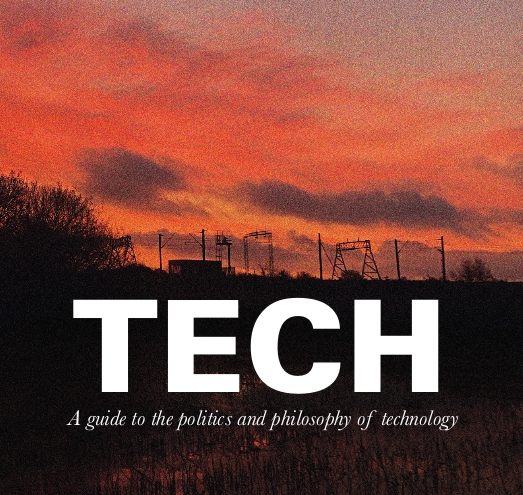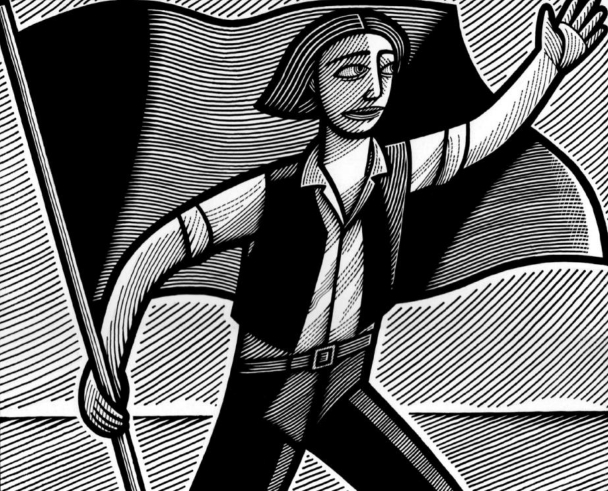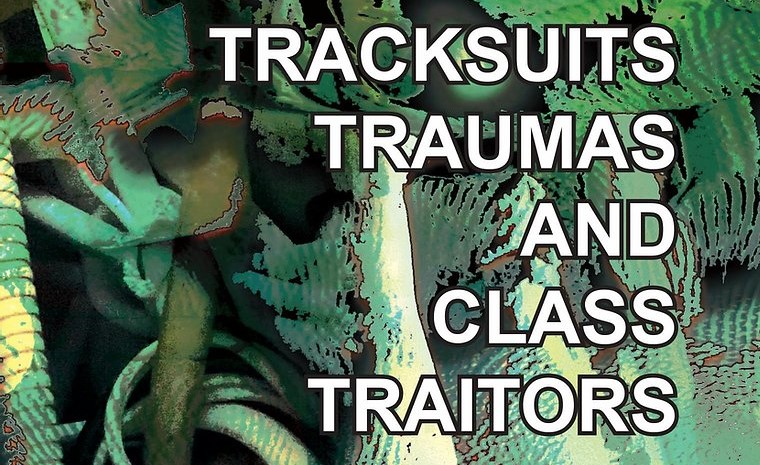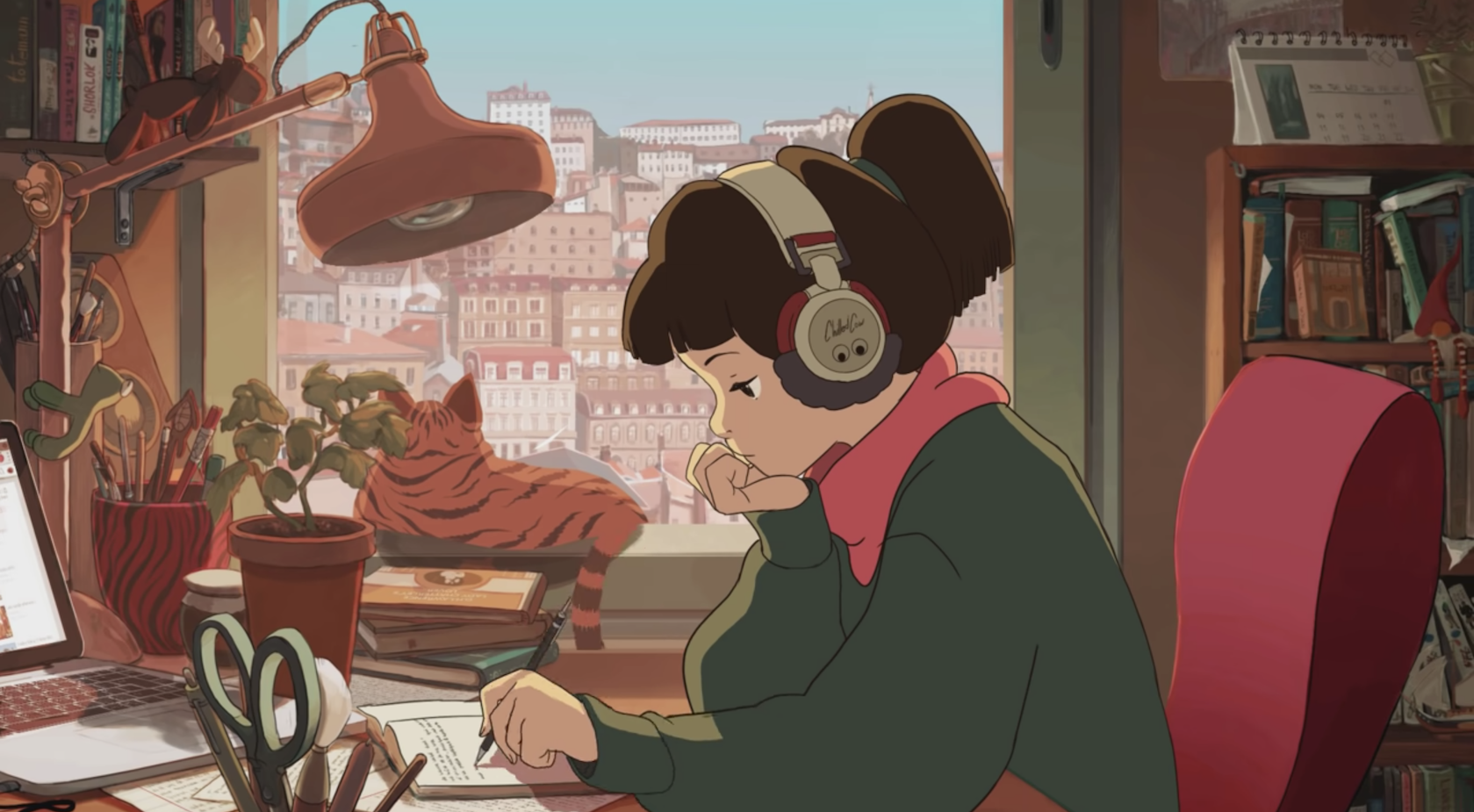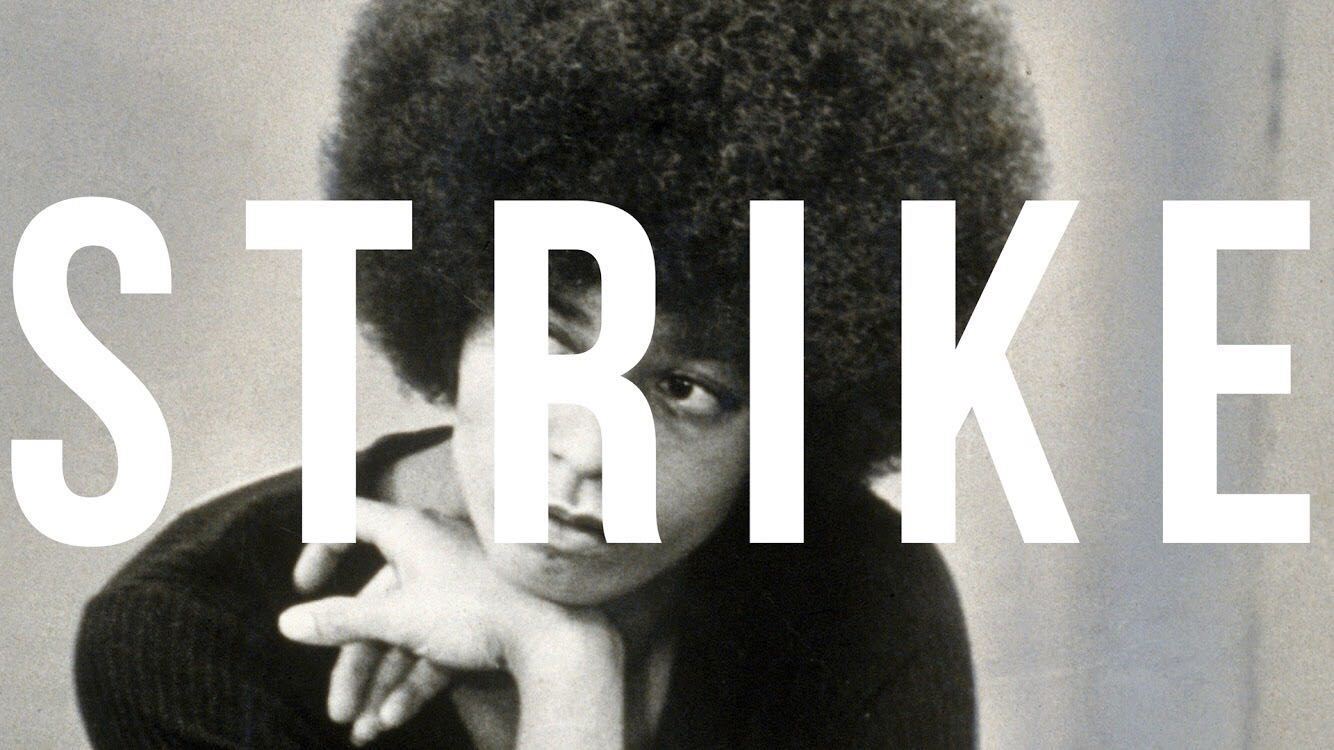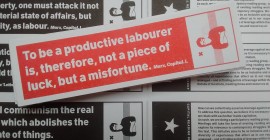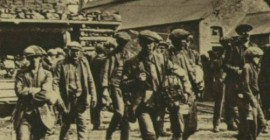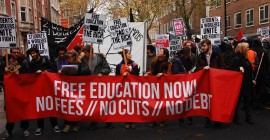The following is a document that was submitted and discussed at the recent Plan C congress. The congress decided to adopt the resolution that we should make addressing unequal power relations part of our shared politics, and use the paper as the basis for ongoing discussions in Plan C. We are posting this here in order to continue the debate and spread it to those outside of Plan C.
One of the roles that we see for Plan C – in the context of a British left that is chronically under-organised – is making the case for committed political organisation. This paper examines one of the reasons that political organisations are preferable, namely that they allow a group to address several problematic issues that arise as part of the organisational process and distribute power within the group. The paper argues that unequal power relations should be discussed within Plan C, should be debated publicly, and offers some recommendations of how this can be strengthened organisationally. We would like to submit a document along these lines to the next congress; however we would like to have a discussion beforehand so that the document that is submitted to congress is as strong as possible. The issue of power within organisations was important in the discussions we had in Birmingham that led to us becoming members of Plan C. Our views on the issue have also been informed by discussions we had with members of the IL in Germany, about the way that these issues are addressed within their organisation. The aim is not to fetishize non-hierarchical organisation in the manner of occupy or parts of the student movement. In fact, in many cases we would call for the imposition of hierarchical modes of organising – because they emerge anyway, and it is better to have them decided on and held to account by the group.
In the authors’ experience, attitudes to unequal power relations within most of the British left can be broken down into three camps, all of which are deficient. 1) Unequal power and formal leadership is no problem, and should be explicitly recognised in a central committee or other leadership body. 2) Unequal power can be addressed by getting rid of a formal leadership and/or using methods such as consensus decision making. 3) Unequal power relations emerge because some people are more privileged than others and need to be shouted at and made to feel guilty until they give up their privilege. We believe Plan C should argue, against these positions, that: unequal power relations are important but can only be addressed through serious organisation and the creation of structures. Tactics to address unequal power relations that break up or do not allow political organisation are shooting themselves in the foot. This paper is not meant as a critique of Plan C, the discussion is centred on the problems of organisation in general, and a central point we are making is that these problems arise in all organisations and require work to be addressed.
Finally, we recognise the real differences in people’s capacities. But we also recognise the real indifference of capital and the state to these as a political problem. We therefore demand, but also plan in theory and in practice, organisational forms that recognise the moral equivalence of people’s capacities, and seek to maximise them in all their differences. Our goal, then, is not to create a world of absolute equality – for this world would look all too familiar to the abstract fairness of capitalism, i.e. a world where particularity is flattened into a single universal category. Rather, we want to exist in a communist world in which universality entails the particularities of each living being.
Some notes on language
We use the word power relations to refer to the fact that within organisations, the same kinds of work, behaviours, ideas, or opinions are recognised and treated in a very different way depending on the person who is doing them. This means that some people within campaigns or organisations have more power to make decisions than others, have their feelings taken more seriously, and/or get more recognition for their contributions. These kinds of differing power relations are usually not sporadic but reflect internal hierarchies within organisations or campaigns. Certain people come to be viewed as leaders, as central to the organisation, or as someone you have to talk to and get on board in order to make decisions. We realise that to some extent different reactions to the same behaviours will always exist, and that it would be neither possible nor desirable to eradicate them completely. However we believe that efforts should be made to deconstruct these power relations, to a much greater extent than tends to arise in organisations without a politics to actively challenge the unequal power relations that emerge. We use the term formally non-hierarchical to refer to organisations that do not have any kind of officially recognised leadership, i.e. organisations without a central committee or other kinds of governing bodies.
Structural oppressions within our society such as race or gender have a huge bearing on the question of unequal power relations. Very often those who are men and/or white will occupy a dominant position within organisations and have their ideas and work taken more seriously than those who are women and/or black. However we do not think that the question of unequal power relations within organisations can be reduced to the question of structural oppressions. This is because in a particular organisational context who is dominant in different spheres is much more complex than these large abstract categories, and because in our experience adopting a simplistic ‘all men are dominant’ view can prevent the analysis of what exactly in Men’s behaviour is a problem, how it can be addressed, and how similar behaviour is replicated by for example women. The article does not address questions of structural oppression, though we think it needs to be taken very seriously in any politics of equalising power.
How unequal power relations emerge in organisations
As many of us have probably experienced, a formal lack of organisational hierarchy is not the same as a genuine moral equivalence of people’s capacities, and can often hide extremely strong and entrenched informal leaderships. The fact that a group is officially non-hierarchical can even provide an ideological cover that prevents the leaders that almost always emerge being challenged. In formally hierarchical organisations the informal power relations that coalesce around those in leadership positions (e.g. the deference shown to members of a central committee), are often more damaging than the official power structures. In many organisations leaderships maintain themselves through some degree of unacceptable (abusive, dominating, or manipulative) behaviour, however we do not believe that unequal power relations emerge solely through this unacceptable behaviour, or can be addressed solely by challenging it. Rather unequal power relations exist prior to, and emerge as part of, the organisational process, even without any unacceptable behaviour. The point of this section is to try to examine how unequal power relations often emerge in groups, not to suggest that all of the things mentioned below are unacceptable and need to stop.
To some extent members have unequal power prior to the organisational process. Some people are more dominant, likely to push their own ideas, and object strongly if there is something they don’t like; people have very differing amounts of time, and are more or less skilled in different kinds of tasks; there are large differences in people’s knowledge and knowledge of the organisation; and differences in terms of friendships and knowing the right people. However, additional power relations emerge as a part of the organisation and are reproduced by the organisational process. In the absence of structures unequal power relations often form as an adaption that allows the organisation to get things done. In any organisation with more than a few members, it becomes seriously difficult to consult all members and to take everyone’s opinions into account. It is much easier if a small number of key people can be identified who need to be got on board in order to get things through. Even in an organisation that is very structured there is always likely to be activity that goes outside the bounds of the structures and needs to be organised in this way, or people emerge who are important to get something through structures in the organisation.
Because of certain skills, experience, or the time and ability to work hard; certain people emerge that are extremely important to the work of the organization. They might take on or be the only people who can do key functions or their ability to organise or work hard may make them indispensable to activity being carried out. These people then gain power over decisions because they can ultimately refuse to carry them out. As a part of organising people often form into political or friendship groups. Ideas, behaviours and work are much more likely to be taken seriously by friends or people you know who look on you more favourably or understand the subtext of your ideas and action. To some extent unequal knowledge exists prior to members joining the group, however it is also reproduced by the organisation. Older members retain a better knowledge of the group and its history than newer members, those who are friends with key members of the organisation are more likely to casually talk over information from the group, and those who are seen as more central to the group’s functioning are likely to gain cumulatively more knowledge about its activities. The combination of these different tendencies means that in any organisation there is likely to be a strong push towards unequal power relations and the emergence of informal leaderships. We do not believe that these tendencies can be stopped but can only be limited or counteracted by the politics and structures of the group.
Why unequal power is a problem
Given that these relations arise in all organisations, take work to address, and are often adaptations that allow the organisation to work more effectively; the question might be asked why these relations are a problem. It is our belief and experience from organising that even though informal power relations can at times be useful to the organisational process, they ultimately create a number of issues that undermine political work. In a single issue campaign there tends to be little or no possibility to address these issues and so informal leaderships can be a necessary part of the way that the organisation functions, however we believe that in a political organisation the issue of power can and should be addressed. People whose actions, ideas and work are less recognised – or judged more harshly – than others, and who don’t have as much power to affect decisions, are much more likely to leave the organisation. Even if people don’t leave, this kind of differential power and treatment breeds resentment that has a corrosive effect on the organisations work. If you feel that you are not taken as seriously as others or occupy a subordinate position in an informal hierarchy, then work feels less self-determined, more of a burden, and is less likely to be done.
Those who are most dominant within the group and have the most power to affect decision making are unlikely to be the people who make the best decisions. Having some people who get their ideas heard more strongly than those of others affects the quality of decisions making, and can also prompt resentment or members leaving the group. Unequal power relations can lead to unacceptable and/or abusive behaviour from dominant members of the group, and can prevent this behaviour from being dealt with or challenged. Even if dominance and power relations do not lead to unacceptable behaviour in a particular organisation; then we still believe this point is relevant because it may be a factor in it in future. The left as a whole needs to develop modes of organising that are effective while reducing informal power relations. An unequal distribution of power makes an organisation more fragile. If key members that the organisation relies on burnout, have to take a step back from organising, move away, or leave the group; then it is very difficult for the group to maintain its current work and output. Finally we believe that unequal power relations erode or do not develop people’s ability and willingness to act as autonomous agents. Concentrating responsibility in a small number of people means that others do not want to, or have to, take responsibility. Organising in a way that recognises the real differences in people’s capacities is key to creating the kind of organisation that maximises the capacities of each member without creating unequal power relations.
The Only Way is Organisation
In our opinion the only way to get round these disparities of power is by taking them seriously and organising in a way that minimises them as far as possible. This is much more feasible in political organisations with reliable and dedicated members because a number of different features of informal organisations, single issue campaigns, or small collectives unaccountable to the wider movement; actively create unequal power relations and prevent them from being challenged. In groups with loose membership structures, where no one is sure exactly who is and isn’t a member, it is extremely difficult to properly induct people into the group and make sure there is not a disparity between newer and older members. If there is not a kind of shared reliability that people sign up to as members of the group, then organising comes to depend on a core group of people who are reliable. Small collectives that seek to organise within the wider movement often create a disparity between the people in the collective and those outside who they try to bring into their activities. Single issue campaigns often operate on a consensus on the particular issue that is being campaigned about, but the lack of a wider political discussion or agreement discourages action towards issues such as power relations that may be controversial and contested by different people in the group. A number of the tendencies that lead to unequal power in groups, such as differences in abilities and time, arise as part of the organisational process and could not be addressed except by imposing restrictions that would destroy the group’s ability to organise. These tendencies can only be addressed through structures that push in the other direction and distribute power, and this can only take place in committed political organisations with a perspective to organise over the long term.
Proposals
In this section we outline quite a lot of proposals as to how Plan C could address these issues. We are not saying necessarily that Plan C should, or has the capacity to, implement all of them, and we hope that if people disagree with particular recommendations this will not affect their conclusions from the document as a whole. In some of the proposals we outline some ideas for how the particular structure should look however we would like to work with the rest of the organisation to shape these structures in the most effective way possible.
1) Make the issue of unequal power relations part of our shared politics: The first thing that can be done to address unequal power is recognising the issues raised in this text and making them a stated part of our politics. This would mean that these issues are taken into account in the way that Plan C organises, and provides a shared political basis that leaderships can be challenged, arguments can be made and modes of working can be developed.
2) Create an internal wiki that includes past discussions written by Plan C categorised into topics (e.g. discussions of organisation in the 2012 congress, the 2013 delegates meeting, and the 2015 congress would be grouped together). New members should have the best possible opportunity to access the information about the group, including the structures and the history of discussions when they were not part of the group. This would also allow new members access relevant information easily and quickly. It could also be used as a platform for other kinds of practical support, for instance uploading essays, resources, etc. While the Wiki may be a lot of work to set up and maintain we also believe that it would save a lot of work by being a very good resource for writing and speaking, and would make the education of new members easier. Hopefully we could create the kind of culture that exists on Wikipedia where people edit the wiki in their spare time.
3) Make all Plan C work as visible as possible ideally for each big event that is organised by Plan C we should try and list all the tasks that are being done, and who is doing them. Often many people within organisations are simply unaware of all the work that gets done to keep the organisation going. This leads to backroom work being devalued in favour of obvious exciting work.
4) All members to share in the burden of the organisation’s reproduction It is too common in organisations that certain people take on work that is often unrecognised, while others disproportionately take the outward facing roles and get credit. As a way of getting round this we propose that everyone in Plan C should be members of reproductive commissions that organise things like national events, finances, fundraising, membership, the website, etc. This is a system that is used effectively in organisations in Germany.
5) Have discussions about the expectations members should have to each other and the organisation. Write these up into a document that is given to new members. We think it is extremely important in organisations that people have a clear idea of how they are expected to act and what they can expect from others. Lack of clarity around these issues creates situations that are not transparent, where people don’t know what they can expect or how things work, and facilitate the emergence of an informal leadership. We cannot exactly say what would go into a document outlining expectations however a few things we would want to be in there are: reliability, if people say they are going to do something they should do it; ability to take steps back, everyone goes through phases where they need to cut back or cut out and these should be able to be accommodated by the organisation without it stopping to function; fairness, people should try to distribute tasks and treat people as fairly as possible all members should take responsibility for the group’s activities; visibility, all knowledge and work within the group should be made as transparent and visible as possible.
6) Have discussions about what kind of behaviours are acceptable in a political context, what are seen as unacceptable, manipulative or dominating, and how unacceptable behaviour should be dealt with. Write these up into a document that is shared with new members. The kinds of behaviours that are unacceptable in political organisations range hugely in severity. We see statements such as: ‘I have done so much work for this’ or ‘I have been in this organisation for so long’ and therefore I should get my way as a kind of low level manipulative behaviour; someone uses irrelevant information to try and get their way. However they are something that many of us have thought or said at some point. At this low level being clear about what kinds of behaviour are unacceptable is important because it provides a platform that these things can be challenged, without the person taking it in the wrong way. At a more serious level being clear about the kinds of behaviour that are unacceptable and how they will be dealt with serves a preventive function, showing that the actions will be taken seriously, and allows situations to be dealt with more effectively when they do arise.
7) Delegate people to perform roles that are inherently, or likely to become, hierarchical: for example at big events someone almost inevitably takes on the role of bottom lining the event and making sure everything is happening, or at demo’s often there will be someone who ends up making the decisions about where the bloc goes. In these situations it is far better to delegate the role to someone explicitly so they can be held to account rather than just leaving it in the air.
8) Formalise structures for decision making, and make these structures immediately accessible to everyone who joins. In the absence of formalised structures things get stitched up between people, and those who are more likely to object and to get those objections taken seriously have more of a say than others. The structure we would suggest is that emergency delegate meetings can be called, with enough time that all members of local groups can meet and decide on what is taken forward to the delegate meeting. We do need a way of including members who are outside of local groups in this decision making procedure, however we believe this needs to be formulated and an imperfect procedure for this is better than no procedure at all.
9) Write up a document of Plan C’s decision making procedures and all policies and give it to new members when they join. At the moment Plan C’s democratic structures are not given to new members, and this creates confusion as to how exactly things are done.
10) Properly formulated and transparent chairing procedure for Congress/ other events. Plan C is now reaching the size where we need to have proper chairing procedures for congress, which need to be understood by all members. This should have some mechanism for ensuring that those who speak less are given priority when speaking. We think it is worth considering a card system, where people chose a red, yellow, or green card depending on how comfortable they feel speaking, and speakers who feel less comfortable are prioritised in the stack.
11) Organise sessions at congress in a way that maximises participation. What this precisely means needs to be assessed depending on the situation, however we believe that participation in meetings can be improved if the meeting organised beforehand with this objective in mind. As the organisation grows discussions at congress are likely to become more stretched, and it might be worth trying to conduct discussions using techniques such as breaking up into smaller groups, or getting everyone to speak for a specified time.
12) Record who speaks on which items at national events: As a part of trying to promote participation at national Plan C events, we think that who speaks on which items on the agenda should be recorded to assess the levels of participation. This could then be used to evaluate the success of strategies to get maximise participation in discussions. Possible lines for recording could be the gender identity of speakers, and number of speakers using each different card (see above).

